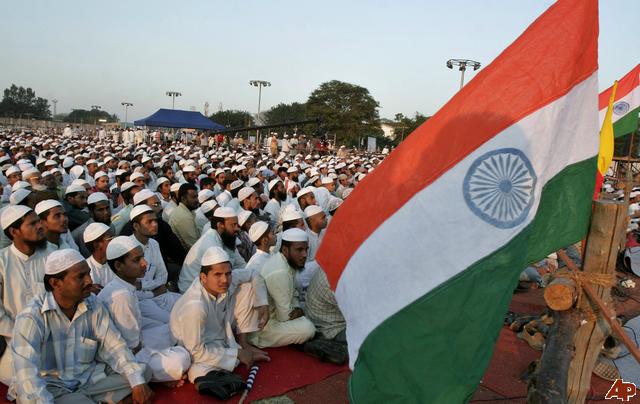
The Indian Muslims and Social Justice
Indian Muslims constitute 18 percent of India’s population. The Islam in India is different from Islam elsewhere. Further, Muslims are not a homogeneous group. They speak different languages and have different cultures depending on where they live in India. The Muslims in Maharashtra speak Marathi and Muslims in Tamil Nadu speak Tamil language. They are influenced by local peers, particularly, Sufism, which has an influence on Muslims in India.
Unlike Muslims in the middle eastern countries, Muslims in India are generally not fundamentalist and this is due to syncretic Islam that they practice in India. Most of the so called Hindus regularly visit famous Durgas and places famous for Muslim saints. One of the factors that is underpinning Muslims is the caste system. The high caste converts to Islam are a few in numbers. The majority of India’s Muslims (86 %) declare themselves as backward classes.
Indian Muslims have not come from outside. They are very much part of India’s heritage and cultural.
India was ruled by the Muslim rulers for a long time. But they did not rule alone, they built alliances with India’s high caste. Due to the brotherhood in Islam, many backward class people converted to Islam. And Indian Islam is infested with the caste system.
After the partition of the British India, Indian Muslims form the second largest population after Indonesia. Therefore, the Islam in India which is mainly dominated by the lower caste has the power to emerge as the force that can transform Indian state, but also affect positively the entire world.
The Indian Muslims and RSS
RSS was formed in response to growing awakening among the backward classes, particularly in response to Non-Brahmin movement started and consolidated by Jotiba Phule and later Shahu Maharaj. However, the non-Brahminical movement reached its pinnacle in the South India, with Periyar and his Justice Party.
The RSS needed to target and create “the other” to create an artificial sense of Hindu identity in which Brahmins will reign supreme. This is very much evident in the hatred preached by the RSS against the Muslims. The Muslims majority is oppressed classes. They are not only oppressed by the caste system, but also by the Hindu-nationalist discourse that treats them as anti-national in the scheme of Hindu-nationalists. This is important for the RSS-Hindutva nationalists to exploit the divisions among the so-called Hindus on the caste lines.
The rhetoric of Muslims masquerades the fissions in the so-called Brahmin-led Hindutva nationalism. The notable Hindutva leaders like Savarkar, Tilak, Golwalkar were all Brahmins and they decisively opposed the backward classes and their quest to be included in the national life.
The Muslims and the Social Justice
Being the citizens of India, the Muslims have a framework to fight for their natural and fundamental rights peacefully. The greatest power with them is the vision of Social, economic, and political justice that the constitution of India ensured to all the citizens of India.
The Muslims are also fragmented into caste and hence the Muslims also need internal social reforms. They have to start breaking barriers within it. The Pasmanda Muslims, the ex-untouchable converts to Islam, suffer all forms of injustices with the established Islam. It is important for the Muslims in India to fight the battle for social justice. In India, there is already a civil rights movement in the name of Babasaheb Ambedkar. Slowly, but surely the Muslims are awakening to the life, mission, and message of Babasaheb Ambedkar.
In fact, the SCs in Undivided Bengal felt that their rights will be more secure with the Muslims and they went to Pakistan. The great leader of Pakistan and its first law minister, Jogendranath Mandal, was striving very hard to establish democracy in Pakistan. But the elitist in Pakistan did not want democracy and the result is before us that how Pakistan has become a weak state. Babasaheb Ambedkar is increasingly becoming popular in Pakistan. He is being read and discussed in Pakistan. If the Muslims take a stand of social justice instead of radicalizing their faith-based organization, they can change the fate of not only India but the entire world.
The Muslims and the Ambedkarite movement
The Ambedkarite movement is the movement for social, economic, and political justice for all the citizens. The alliances are important. They must ally together in the name of social justice. At least, 78 percent of the Muslims are the natural allies of the social justice movement in India. If they can form working political alliances as is emerging in UP, and extend it to all India, they can easily play a decisive role ensuring social justice to all.
The backward castes in India have their kith and kin who have left them in search of dignity and respect. The quest for dignity and respect will make them come together. It will be a remarkable step in democratizing India if the most vulnerable citizens come together for ensuring social justice and hence deep democracy in India.



+ There are no comments
Add yours